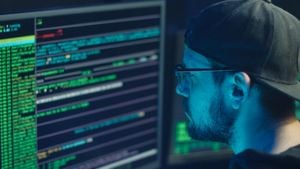The world of Japanese manga often intertwines with real-life issues, and the recent declaration from the author of the medical-themed manga, "Neurosurgeon Takeda-kun," highlights the delicate balance between fiction and reality. On February 5, 2025, the author revealed their deep personal connection to allegations of medical malpractice surrounding Akō City Hospital, igniting conversations about medical ethics and accountability.
According to the author, who has chosen to remain anonymous, they are a relative of the victim involved in a significant medical malpractice case at Akō City Hospital. The incident occurred on January 22, 2020, during surgery for spinal canal stenosis, which resulted in severe consequences for the patient, including paralysis. "I (the manga author) am the relative of the victim of malpractice on January 22, 2020, at Akō City Hospital Neurosurgery," the author stated, addressing listeners with sobering clarity. This declaration came after more than a year of silence on the matter.
The manga, which began posting chapters online in January 2023, explores the troubling themes of medical negligence and institutional accountability. Initially hailed for its gripping depiction of the failures of certain medical professionals, it became more controversial as it aligned closely with the real-life events surrounding Akō City Hospital, where the same surgeon had been implicated in multiple cases of malpractice. The author shared their motivations for creating the piece, stating, "I was able to gather information directly or indirectly from people involved about the series of medical accidents and the inner workings of neurosurgery." This approach aims to give readers insight not only about the specific case but also the broader societal issues linked to medical negligence.
One of the central themes of "Neurosurgeon Takeda-kun" lies within its critique of the medical profession. Through the lens of fictional storytelling, the author sought to encapsulate the real tragedies faced by patients and families, stating, "I want readers to be aware of the social problem of people suffering without proper relief after medical accidents." This brings to light the chilling reality where many victims, like their family member, suffer severe consequences without the awareness or urgency required from medical institutions.
The manga author clarified the stark difference between fiction and the portrayed realities within their work. They emphasized, "The manga itself is fiction, yet the episodes about medical accidents are based on real events and hospital troubles at Akō City Hospital." This line blurs the boundaries of creativity and truth, wherein fictional narratives are grounded firmly in distressing, factual accounts.
The story portrayed within "Neurosurgeon Takeda-kun" serves as more than entertainment; it functions as advocacy. The author articulated their fear of the memory of the malpractice incidents fading away, asserting, "The truth behind this series of medical accidents must not be forgotten or overlooked, or else history may repeat itself, leading to new victims." Through their work, they hope to inform the public not only about the consequences of malpractice but also the broader systemic issues at play, including the negligence of oversight agencies.
Throughout the narrative, the author aims to reflect on the institutional shortcomings within the healthcare system and emphasizes the significance of safeguarding patients' rights. After the author’s personal revelations, it became evident why the content struck such deep chords with audiences. Readers were not just witnessing fictional mishaps—they were engaging with the painful reality of medical crises.
Since the statement was released, interest has surged surrounding both the manga and its author. The controversies around the hospital and the related legal proceedings—including the criminal charges brought against the surgeon involved—make for compelling reading, blending aspects of drama, suspense, and social commentary. With multiple medical accidents attributed to the same physician, including at least eight known cases, the urgent need for reform within medical establishments has never been more pronounced.
While the author mentioned facing risks associated with exposing such sensitive material, they have vowed to continue advocating for victims and reform through their storytelling, saying, "Even if legal actions are taken against me, I will uphold my commitment to bring attention to these issues." Their dedication to transparency and accountability within the healthcare system sets a benchmark for other creators and emphasizes the importance of addressing such dark matters through art.
This saga of personal trauma, artistic expression, and social advocacy encapsulates the changing role of manga as not just entertainment but as powerful tools for change and awareness. The case surrounding Akō City Hospital and the revelations of the author invite readers to deliberate on how society can protect the vulnerable and hold institutions accountable for misconduct.



